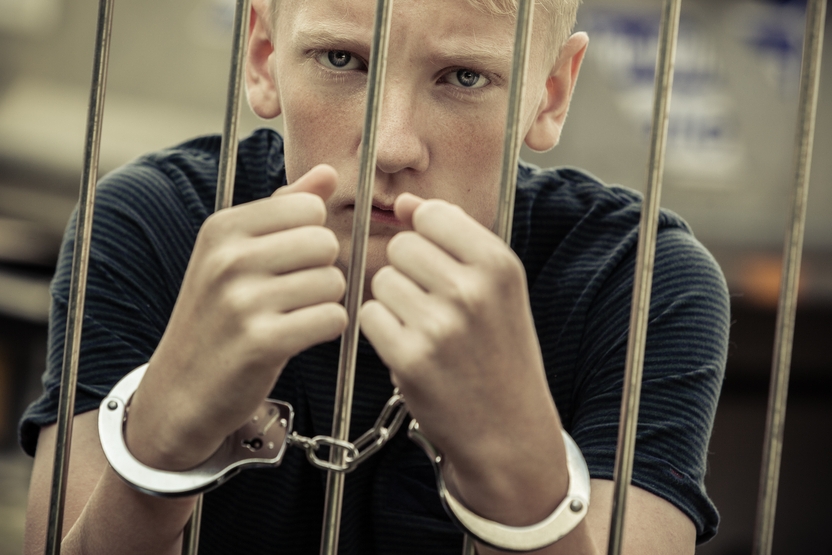
Juvenile Crime Lawyers in Moorestown, NJ: Guiding Young Clients Towards a Brighter Future in Burlington County, Camden County, Gloucester County, and Throughout South Jersey
Juvenile crimes are prosecuted differently under New Jersey law for good reason. While crimes committed as a juvenile can have the same consequences as those committed as an adult, in certain circumstances a focus on rehabilitation in conjunction with punishment is more appropriate because juveniles are at an age where they may be unable to make concrete decisions with a firm understanding of the lasting consequences that their actions can generate. Even under circumstances where public policy dictates that a punishment must apply, we simultaneously recognize that young people may be subject to different impulses and rash behavior that is partially justified by age.
If you or your child has been accused of committing a crime punishable as a juvenile, the advice and advocacy of a skilled juvenile crimes lawyer is extremely important to protecting the accused’s future. This is especially true in juvenile cases because New Jersey courts have considerable discretion in the types of punishments that juveniles will be subject to even if convicted of the crime accused. At Attorneys Hartman, Chartered, our skilled juvenile crimes lawyers are committed to formulating strategies designed to garner consequences aimed at rehabilitation to prevent one childish misstep from adversely impacting the client’s entire future.
- Juvenile Crime Lawyers in Moorestown, NJ: Guiding Young Clients Towards a Brighter Future in Burlington County, Camden County, Gloucester County, and Throughout South Jersey
- Understanding Juvenile Crimes in New Jersey
- Attorneys Hartman, Chartered Focus on Client Rehabilitation in Burlington County Juvenile Crime Cases
- Call Today to Schedule a Free Case Evaluation if You or a Child Have Been Accused of Committing a Crime as a Juvenile in Mount Laurel, NJ
Understanding Juvenile Crimes in New Jersey
Generally, a crime will be prosecuted as a juvenile crime if the accused individual was under the age of 18 at the time the crime was allegedly committed. Despite this, in some cases, the judge may determine that it is appropriate to treat the crime as though it was committed by an adult—this is particularly true in cases involving very serious violent crimes. Because of the differences in the way juvenile crimes are treated, they are usually heard by the family court judge in the county where the juvenile resides.
However, in some cases, more informal options may be available to avoid appearing in family court. Alternative possibilities include:
- Juvenile Conference Committee. Relatively simple juvenile crimes may be heard by a juvenile conference committee, which is a panel comprised of volunteer citizens who a family court judge appoints to consider an appropriate punishment.
- Juvenile Referee. A juvenile referee is an attorney who hears the case instead of a judge, but who has the authority of a judge in the case. The referee recommends an appropriate disposition of the case, which is then reviewed by the family court judge.
Additional differences between juvenile crimes and adult crimes include:
- In juvenile cases, the juvenile is not entitled to a trial by jury,
- Juveniles are required to be represented by an attorney at all hearings,
- Rather than the “beyond a reasonable doubt” standard that applies in adult cases, juvenile crimes are judged by a “best interests of the child” standard in most cases,
- Variations in sentencing, for example, an adult convicted of a first-degree crime could face up to 20 years in prison, while a juvenile who is “adjudicated delinquent” for committing the same crime would face up to four years in jail.

Attorneys Hartman, Chartered Focus on Client Rehabilitation in Burlington County Juvenile Crime Cases
New Jersey judges have significant discretion in determining the appropriate sentence for a juvenile who has been adjudicated delinquent. At Attorneys Hartman, Chartered, our juvenile crimes lawyers work tirelessly to form a compelling argument for a sentence that focuses on reform and rehabilitation, rather than strictly punishment. Factors that may be considered in determining the appropriate punishment include:
- The type of offense involved,
- Any ongoing threat that the juvenile poses to public safety,
- The damages or harm caused by the offense, including the impact on the victim and the community,
- The juvenile’s needs, including from academic, social, psychological and physical standpoints,
- The juvenile’s age and any previous criminal record,
- Any other relevant issues.
Common alternatives to formal detainment in cases involving juvenile crimes include:
- Deferred disposition, which is a process that allows the juvenile charges to be dropped after the juvenile completes certain court-ordered requirements,
- Community services,
- Restitution,
- Probation,
- Monetary fines,
- Substance abuse treatment
- Counseling,
- Driver’s license suspension,
- Written assignments aimed at reforming the child’s behavior,
- Educational or vocational programs.
Call Today to Schedule a Free Case Evaluation if You or a Child Have Been Accused of Committing a Crime as a Juvenile in Mount Laurel, NJ
If your child has been accused of committing a crime in Mount Laurel or elsewhere in New Jersey, call or contact the skilled juvenile crimes lawyers at Attorneys Hartman, Chartered to advocate on your behalf. We are committed to helping you throughout the entire juvenile criminal justice process and will zealously fight for your child’s rights every step of the way.




